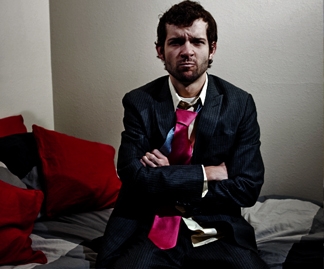I have a friend who lives in a dormitory with 25 other young men. He was born and raised in one of the poorer provinces in Cambodia. When he hit 18 he packed his meager possessions and struck out for the city of Phnom Penh to find work and to live a better life—the typical American Dream for a young Cambodian.
He was able to live with his uncle free of charge so long as he worked in the family business, selling small goods on the streets. Most days he would walk the streets for more than 10 hours, trudging through rain, rubbish and heat, all in the hope of making enough money for his uncle to be happy with him.
After a few years, the mind numbing work and the lack of any love or support began to take its toll. My friend strongly considered running away, but he had nowhere else to go, and if he disrespected his uncle he knew his family in the province would not welcome him either.
Trapped, he stumbled upon a local church teaching free English classes. He met people who supported him, who believed in him, who showed him love. He was able to move into the church’s Next Step program, an accommodation and development program aimed at providing opportunity for young people at risk of hurt, abuse, loss and brokenness. He was able to leave his uncle while proving to his family that he was studying and doing well.
Like most young Cambodians, my friend sends money to his parents every month. Over here, it’s often not the parents who can provide for their children, but instead it’s the children who provide for their parents.
When you add into the mix all the issues of abuse within the family environment, emotional, physical and—unfortunately more often than not—sexual abuse, you began to see the broken picture of childhood that so many in this nation suffer with on a daily basis.
Just the other night I was having dinner at a street stall outside Oressey Market. It’s a popular place for local cuisine, but not many foreigners venture there. The apparent lack of food sanitation and interesting food choices might have something to do with it (for the record, my fried noodles were very good, no intestines to be seen). Street children, begging for money and eyeing the digital cameras, surrounded my group. These children live the most impressionable part of their lives on the streets of Phnom Penh. Some of them are there by choice, having nothing else to hope for, others are orphans, some are even “employed” within their families as professional beggars, but none of them are happy. There is an abiding sense of fear within their groups since deep down I think they know they are alone.
Back home in Australia, I had been involved in youth ministry work for a number of years. I loved it. I loved working with young people, encouraging, teaching and, most of all, caring for them. It remains one of the most fruitful periods of my life. But I didn’t do it because I initially felt called to it, as if this was something I was meant to do. Instead, I did it because I wish someone had been there for me. I wished that I had had a youth leader or older person who believed in me. I didn’t struggle for day-to-day living like many of the youth in Cambodia have had to, but I did battle my own hurts, my own brokenness, like countless other young people. I often wished I had someone willing to come beside me when I wanted to fall. Like most children growing up and struggling through life, I needed help. I did finally get it, but it just took a while.
Everywhere we look there are children at risk. In each and every community, there are young people who need love and support. Young people who wish they knew what it is to have someone looking out for them.
My friend living in the Next Step house has made the choice to help. Nobody would have blamed him if he had decided to become withdrawn and focused upon his own issues. Instead, he has become the men’s dorm leader. Regularly he speaks into the lives of his fellow dorm members. He has helped to provide stability. He is learning how to lead others, how to support others, and, most of all, he is learning what it means to encourage an environment of love and hope.
I remember reading Rob Bell’s book Velvet Elvis, and being struck by how amazing it is to be one of Jesus’ disciples. He wrote about the fact that Jesus, God’s Son, the best of the best, had chosen the rejects of Israelite religious culture to be His disciples, that in truth, Jesus was inviting them to be like Him. Even now when I think about it, the idea that we can have someone willing to sow into our lives, someone willing to teach, someone willing to let us learn from their life lessons, excites me. I still need it, and at the same time, I know I need to still give it to others.
Every few weeks, I meet with my Cambodian friend and we have Cambodian coffee. I try my best to support him, to teach him, to share God’s love with him. He does his best to support, teach and share God’s love to his fellow dorm members. We are both thankful that Christ has invited us to follow Him, and we try to keep our eyes open, to see if anybody needs a hand along the way.






















